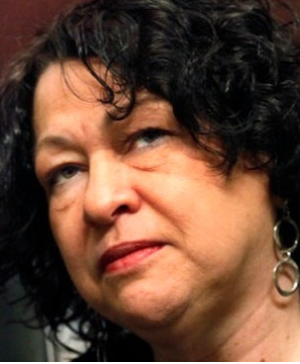Bad Bacon News: Pig Virus Pushes Prices Higher
Bacon eaters, brace yourselves. Prices are rising ... thanks to a new virus that has already killed millions of baby pigs.However, there is a possible solution, at least for the poor and hungry:
Scientists believe the virus, porcine epidemic diarrhea, comes from China. It remains unclear how it got into the U.S. and spread to 27 states. The virus doesn’t affect humans or other animals, so there’s that. But estimates of how many pigs have died—from dehydration caused by the diarrhea—range from 2.7 million to 6 million.
The price of bacon had soared before this virus hit. A pound of bacon averaged $5.46 in February, 13 percent more than a year ago...
Texas County to Feed Feral Hogs to the Homeless
Authorities in Texas have signed off on plans to control the growing feral hog population that includes trapping and cooking the critters to feed to the hungry at local food banks.Feral hogs are a real and growing problem throughout Texas and other states. The traditional approaches - hunting and trapping - aren't working. It's time to try something new. New Zealand is also experiencing a problem with invasive non-native wildlife. They came up with a unique incentive system.
The pigs will be trapped ... in Harris County, Texas, where they are threatening native wildlife and vegetation...
After being captured, the pigs will be taken to a processing plant, J&J Packing Co, where they'll be inspected by a Department of Agriculture officer before being slaughtered. The meat will be sent to the Houston Food Bank.
Tom Harvey from Texas Parks and Wildlife said the state has a long-standing issue with wild hogs, which were introduced to the state some 300 years ago by Spanish explorers as domestic farm animals. Through the years, some pigs escaped and continued to “breed prolifically,” creating the feral population problem today, he said.
“Basically we’re losing the war against feral hogs, while our native wildlife continues to lose their habitat,” Harvey told ABC News. “They do a number of things that are problems: they root in sensitive areas, they trample wetlands, they defecate in water sources and they displace native wildlife.”
Numerous efforts to trap feral hogs over the years have failed to curb the growing populations, which people can legally hunt year-round, provided they have a license and are not trespassing, Harvey said. Parks and Wildlife even introduced its own campaign in 2012 promoting the consumption of wild pigs, including providing a recipe for feral hog tacos on their website.
New Zealand students killing rats in exchange for beer
University students in New Zealand are bringing in dead rats to the local university bar in exchange for beer.There's even a Facebook page for the program.
The University of Wellington Science Society Department is running a scheme allowing students the option to kill rats - and in return providing them with free alcohol.
The university provides the traps to students to help them catch the rats. Once caught, the student can head into the campus pub, The Hunters Lounge and exchange the dead rat for a beer voucher.
The killing of rats was initiated by the Science Society as the rats have become a huge problem and are affecting New Zealand's indigenous wildlife. They are eating lizards and are even climbing trees to eat birds' eggs.
They also have a competitive edge over insects such as the Weta, a native New Zealand insect which is finding it very difficult to forage for food with the rats for company.
In an interview with Vice magazine, Jonathan Musther, one of the founders of the trap campaign said: “Not only are rats directly predating our species, they are also competing with them.”
“We decided to get students from the Victoria University Science Society involved in running Beer Trap. The best way to incentivise them would be to get them a free drink. They are students after all,” said Musther.
Here's another idea... trained alligators...















































